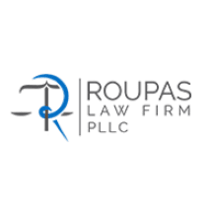Top Greensboro, NC CPS Lawyers Near You
Top Rated Family Lawyers with 2 Board Certified Family Law Specialists. Allow our competent and compassionate Family Lawyers help you today.
Timely & effective representation that will competently & compassionately protect your interests. Call or click today
106 N. Elm St., Ste. 300, Greensboro, NC 27401
In the Greensboro, North Carolina area, Coltrane & Overfield, PLLC can help you resolve your CPS issues.
119 N. Greene Street, Suite 100, Greensboro, NC 27401
Contact Roupas Law Firm, PLLC for experienced CPS guidance in Greensboro, North Carolina.
405 W Westwood Ave, High Point, NC 27262
Need representation for your CPS issues? McPherson & Mills, PLLC d/b/a Scott Law Office offers local assistance in Greensboro, North Carolina.
420 West Market Street, Greensboro, NC 27401
If you need CPS help in North Carolina, contact Woodruff Family Law Group, a local practice in Greensboro, for legal representation.
PO Box 460, Mocksville, NC 27028
100 South Elm Street, Suite 410, Greensboro, NC 27401
328 N Spring St, Winston-Salem, NC 27101
1373 Westgate Center Dr, Suite A, Winston-Salem, NC 27103
230 N Elm St, Suite 1200, Greensboro, NC 27401
413 S. Edgeworth St, Greensboro, NC 27401
437 West Friendly Ave, Suite 134, Greensboro, NC 27401
1011 Kingsridge Rd, Kernersville, NC 27284
300 N. Greene Street, Suite 1900, Greensboro, NC 27401
800 Green Valley Rd, Suite 500, Greensboro, NC 27408
380 Knollwood Street, Suite 530, Winston-Salem, NC 27103
1022 W 1st St, Suite 100, Winston-Salem, NC 27101
125 S Elm St, Suite 100, Greensboro, NC 27401
822 N. Elm Street, Suite 200, Greensboro, NC 27401
250 Executive Park Blvd., Suite 150, Winston-Salem, NC 27103
117 E Murphy St, Madison, NC 27025
419 North Edgeworth Street, Greensboro, NC 27401
115 West High Avenue, PO Box 2726, High Point, NC 27261
119 Brookstown Ave., Suite 400, Winston-Salem, NC 27101
100 N. Cherry Street, Suite 600, Winston-Salem, NC 27101
620 Green Valley Road, Suite 306, Greensboro, NC 27408
Greensboro CPS Information
Lead Counsel independently verifies CPS attorneys in Greensboro and checks their standing with North Carolina bar associations.
Our Verification Process and Criteria
Ample Experience
Attorneys must meet stringent qualifications and prove they practice in the area of law they’re verified in.Good Standing
Be in good standing with their bar associations and maintain a clean disciplinary record.Annual Review
Submit to an annual review to retain their Lead Counsel Verified status.Client Commitment
Pledge to follow the highest quality client service and ethical standards.
What Does CPS Look for in a Home Visit?
When a CPS worker visits a home, they’ll look for signs that indicate how safe a home is or not. For example, is it exceedingly dirty to the point it poses a health hazard? Is there adequate food? Are there open signs of illegal activity like drug paraphernalia? Are dangerous objects or weapons easily accessible to children? Do the children have appropriate necessities? They won’t expect a spotless, perfect home, just one that meets reasonable safety standards. They’ll also be gauging your and your family’s behavior and will likely want to interview some or all of you to get a better sense of your routine and the kind of home life you have.
Are There Any CPS Lawyers Near Me In Greensboro, NC?
The possibility of losing your children is more than many parents can bear. Getting the representation you deserve to protect your rights is never more important than when you are faced with a CPS case. You have rights under the law and an experienced CPS attorney will help you navigate the system to work toward a positive outcome for everyone. The LawInfo directory can assist you in finding a verified CPS lawyer in Greensboro.
When Can CPS Take Your Child?
CPS can usually only remove a child from their home if there’s a valid, reasonable concern for the child’s safety. An order for removal is typically granted by a judge, either after an investigation or before an investigation if they consider your situation such a severe emergency that it requires instant separation. Emergency removal cases are rare, however, so unless there is an immediate threat, an investigation will need to take place first. Cases of neglect and abuse are the most likely causes for CPS to take your children.
What Happens if You Ignore CPS?
If a CPS caseworker contacts you as part of an investigation against you, you have some options for how to respond. Unless the caseworker has a warrant signed by a judge, you don’t have to let them into your home. You can also refuse to answer questions, and if your kids are home with you, you could prevent the caseworker from interviewing them at that time. However, your case will remain open and the investigation will continue. They may be able to come back with a search warrant to enter your home, get a court order to interview your children, or may even be allowed to interview your kids while they’re at school, even without your permission.
What if I Have a Complaint About CPS?
CPS exists to take care of children and families, but the process doesn’t always go perfectly each time. If you have a complaint about a CPS employee, you can try to talk to them directly and then escalate your concern to their manager if the employee is not willing to work things out with you. There are several levels of supervision within the CPS system, and you can escalate complaints all the way up to the state director. Some jurisdictions will even have a dedicated ombudsman who will investigate administrative complaints. If your concern applies more to systematic or policy issues within CPS, you may have related community organizations in your area you can contact, or you can reach out to your state representatives.
What Is a Dependency Case?
Minor children are considered legally dependent on adult caretakers. When a child is left without a guardian who can take care of them, Child Protective Services may intervene and petition the courts to step in to support the child as a dependency case. Children may end up as dependents of the court if there’s evidence that they’re being abused by their parent or guardian, if their caretaker is neglecting or has abandoned them, or if the guardian becomes incarcerated, is struggling with substance abuse, or is otherwise unable to take care of the child. In most cases, the courts will try to assign programs to help the parents or guardians gain resources and education to better care for their children for family reunification. When that’s not possible, the children will usually wind up living with another relative or in foster care.





